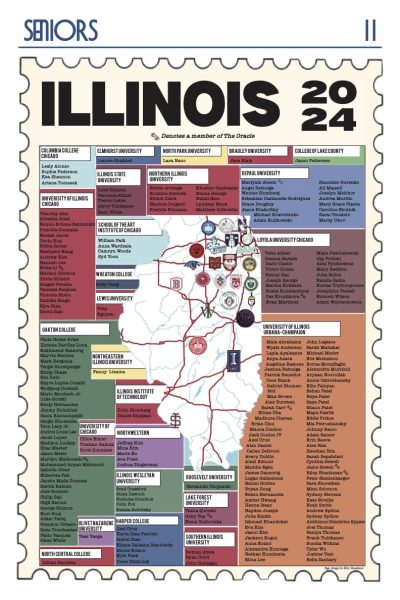First generation students find independence, success
May 25, 2018
After a day of school, students are accustomed to a doting parent asking how their day went. For senior Lesley Zavala, as early as elementary school, these inquiries were accompanied by her mother encouraging her to pursue higher education, despite never having gone herself.
“I’d get back from school and she’d ask me how my day was, and I’d tell her,” Zavala said. “But then she’d say, ‘Keep pushing hard. I know it’s hard and I know it’s gonna get harder, but I want you to be happy and live comfortably when you’re older, so college is the way to go.”
Zavala, who plans to attend the University of Illinois at Chicago, will make up the 22 percent of college students who are first-generation, according to a 2012 study by the National Center for Education Statistics, who define “first-generation” as students whose parents have not pursued any postsecondary education. However, The New York Times has referred to the term as the “fuzziest of all admissions hooks,” pointing to a University of Georgia study that examined eight different definitions.
For example, senior Eric Hyun has family members who attended college in Korea, but will be the first in his family to go to school in the United States. Like Zavala, Hyun grew up with encouragement from his family to continue onto college.
However, Hyun has also grown up with the assumption that he would join the armed forces. As a Korean immigrant, he says he expected to fulfill the country’s mandatory service requirement, but now intends to become an army officer after completing the Reserve Officer Training Corps (ROTC) program at University of Illinois at Chicago.
“Growing up, I’d get really scared. I’d be like, ‘What if I die?’ or I’d be like ‘Mom, please don’t make me go to the military,’ and she’d say ‘You have to.’ So eventually, I grew up and I coped with my fears … Then, I came to the United States, fell in love with this place and got my Green Card, so I’m going to serve here.”
During his early education and up until about seventh grade, senior Mateusz Odziomek says his parents would help him with schoolwork, but eventually stopped around middle school as he become more independent. However, they still continued to remind him about the importance of school.
Odziomek says during the application process, his parents were unsure of aspects like the Common App, which he navigated independently. Overcoming this and other obstacles, he says, makes the opportunity of an American university more meaningful.
“Going to school here, I saw all around me, people whose parents went to college, who were alumni of … top schools and Ivy Leagues,” Odziomek said. “And, the level of colleges and universities here is higher than in Europe, so for my family it was more meaningful to get into a good school here.
Zavala says that first-generation students, by virtue of their upbringing, must naturally teach themselves. This skill, she says, aided her as she applied to schools.
“You’re really on your own because you have no precedent on what somebody did prior to you,” Zavala said. “you learn everything a lot quicker because you have to … because [you have] literally no other option, and because of that I feel like I’m really ready to be a college student.”
While applying, Odziomek says that although his family did not know about the process requirements, they put pressure on him. That feelings came to an end when he received his early admission to Vanderbilt University through Mosaic, the school’s multicultural student program.
“I got home after school, and I was so exhausted from the week so I just took a nap. Then a few hours later they were just standing above me with a letter and they said, ‘We don’t understand what this means. Can you read it for us and explain it to us because we’re not sure.’” Odziomek said. “So I looked at the letter and the first line of the letter read: ‘Congratulations on being admitted to the Vanderbilt 2022 class’ … So from then on the pressure kind of disappeared.”
First-generation students who are looking to pursue college educations should stay motivated despite their hardships, Zavala says.
“Don’t let anyone uninspire you or take away any dream you have,” Zavala said. “If there’s [anyone] telling you to shoot for something lower than you know you’re capable of, totally disregard that and keep working so hard … Don’t let them discourage [you].”












